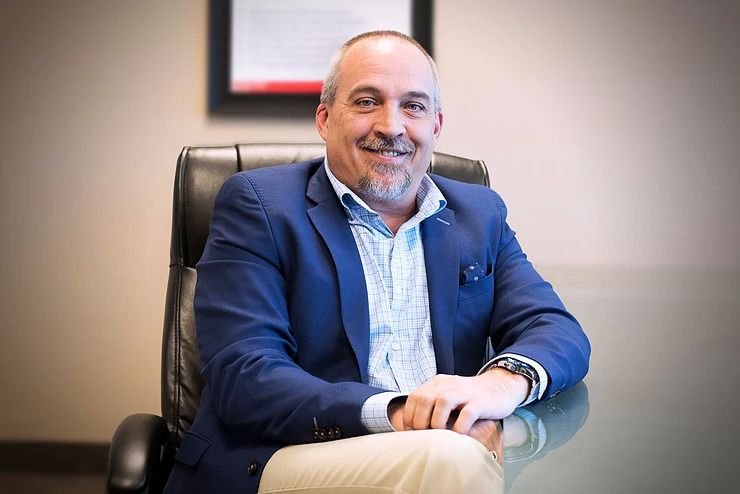Virginia Beach-based FinFit’s financial wellness is catching on

David Kilby wants to leave his competitors in the dust.
And he believes he’s already doing a good job of it.
David Kilby, president of FinFit in Virginia Beach, says his company grew due to the high and growing demand for financial wellness.
The president of Virginia Beach-based Finfit, an online platform that provides financial wellness resources and services to employees, started the company in 2008 and had 17 clients at the end of that first year.
That was the extent of all the friends that I had that owned businesses.
By January 2016, the company had around 300 clients and 12 months later, it had increased its client base to nearly 1,700.
Now FinFit is working with about 100,000 employers.
Kilby said the company is the largest provider of financial wellness in the nation and that its growth is partly due to how much the industry is catching on with employers.
“We’re working with 100,000 employers. That’s how big we’ve become and what’s happening with financial wellness,” he said. “The thing that I get really excited about is we’re building a business that helps people … We’re building a business that is able to help the individual out there deal with the financial stress, the financial challenges.”
FinFit provides services directly to employers or through channel partners. Employees have access to financial education, assessment processes, data points, tools and other resources. Short-term loans can also be issued through a FinFit partnership with Celtic Bank.
The company’s services and resources are what set it apart from similar companies, as well as the requirement of having to go through an education portal before having access to any other resources and tools, Kilby said.
“It’s able to allow them to fix their immediate financial challenge, but at the same time, we require all of our people that utilize our platforms to be in a path of education development,”
Kilby said two years ago, Hampton Roads companies made up about 90 percent of the company’s business. Now it’s down to 25 percent because of FinFit’s gradual expansion to 43 other states.
According to an employer study FinFit conducted for 2017, the platform helped 84 percent of employees solve a financial crisis; 70 percent increased their personal savings.
Out of the employers who took the survey, 76 percent believe the platform improved employee job satisfaction, 55 percent saw a reduction in employee loan requests and 51 percent saw a reduction in 401(k) loan requests.
As far as how many employees use the platform at each company, Kilby said about 30 to 40 percent of a company’s employees will enter the platform within 12 months. That percentage increases as time goes on, he said.
“I think that’s what we’re seeing in our business as people are migrating further and further away from these physical relationships and moving more and more into the digital …” he said. “It’s no longer businesses dictating how you’re going to do business. You, as a community, are dictating to the businesses how you’re going to do business.”
FinFit is already developing a revised platform to cater to Canadian companies that have shown interest, but Kilby doesn’t envision going international anytime soon.
It takes time to redevelop the program to fit a different country’s needs
For now, the company will continue to expand its current client base that includes about 1 million employees.
This year, Kilby wants to expand to 5 million employees and then double that in 2019.
“We want to be able to touch 15 million employees,” he said. “That would be roughly 12 to 13 percent of the American workforce all from little, ol’ Virginia Beach.”
It just takes one employee at a time.
“The more we get to know about our business and the more that we look at these data points, the more that we know that our business is needed and is necessary…” Kilby said. “Financial wellness is not about whether it happens. It’s about when it’s happening.”